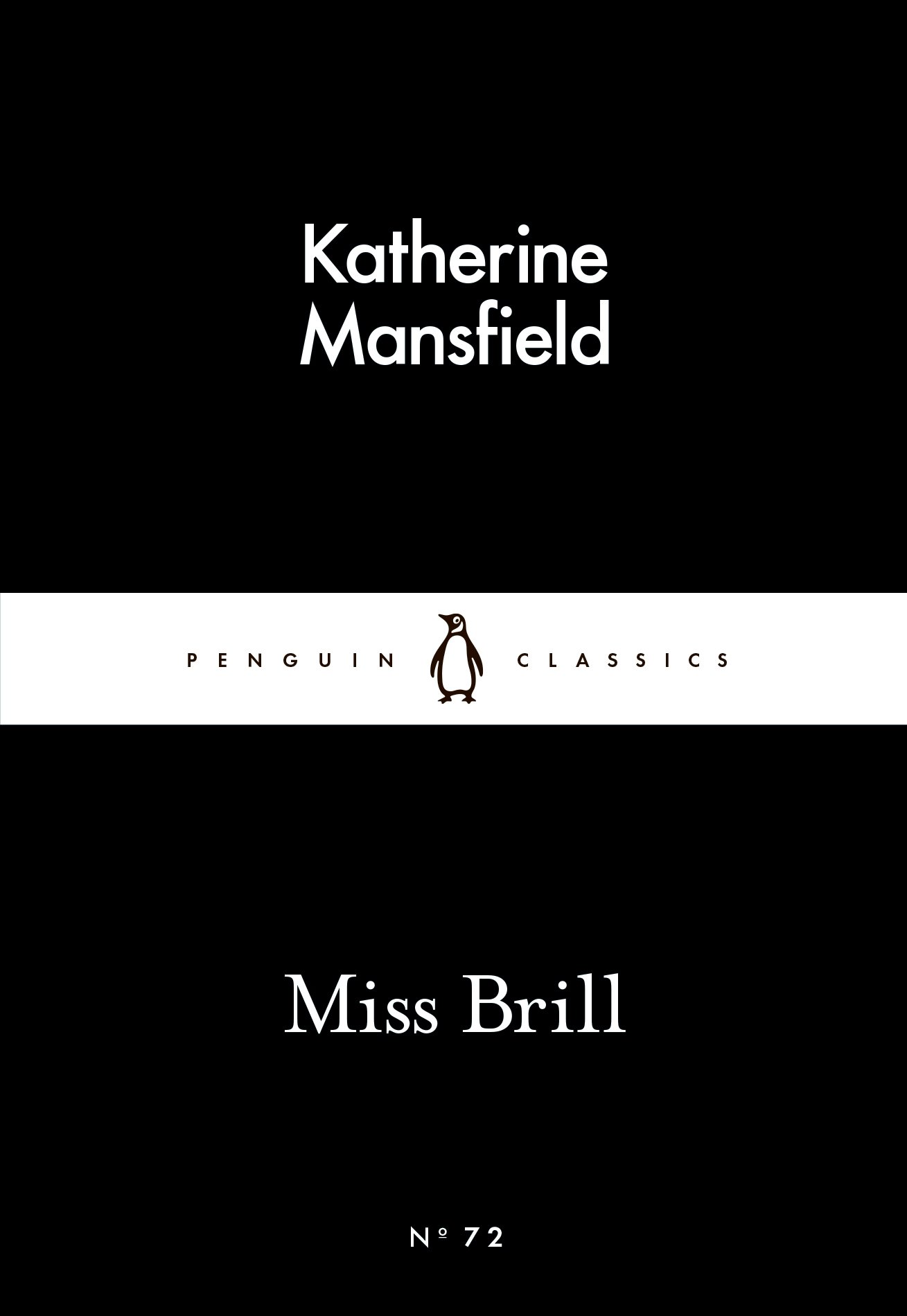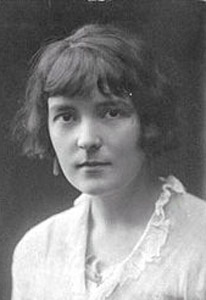
('Music' © Jesse Kruger, 2007)
*
In this essay, one of two runners-up in the 2017 THRESHOLDS International Short Fiction Feature Writing Competition, Jessica Whyte finds a personal side of Katherine Mansfield in the short story ‘Miss Brill’.
~
Comments from the judging panel:
‘Wow. A beautifully lucid exploration of the nuances and devastating force of Mansfield’s writing. The author’s attention to the detail of ‘Miss Brill’ – to the tender observation, the poignancy and the unique music of the story’s prose – brought the story to life again for me. The brief account of the author’s personal story also lends this essay another layer of poignancy and power. I was reminded of just how real a part of our lives stories can be. For me, this essay is an illuminating and humane piece in its own right – the best kind of literary analysis. One feels the pulse of Mansfield at work.’
‘A sophisticated and informed reading of the story.’
‘A lovely tribute to the writer, and some really interesting biographical snippets, particularly connecting Mansfield to Sassoon.’
~
 Jessica Whyte is a freelance writer from the UK. She has published poetry, travel writing and short fiction and is currently writing a novel. She has a degree in English & Creative Writing from Manchester Metropolitan University and an MA in English Literature from the University of Sussex, completing her thesis on Katherine Mansfield. Mansfield’s work is a constant inspiration in her writing, and she is an active member of the Katherine Mansfield Society. She is interested in writing as a tool for growth and healing and is training to be a Writing for Wellbeing facilitator. She tweets at @whyte_jessica
Jessica Whyte is a freelance writer from the UK. She has published poetry, travel writing and short fiction and is currently writing a novel. She has a degree in English & Creative Writing from Manchester Metropolitan University and an MA in English Literature from the University of Sussex, completing her thesis on Katherine Mansfield. Mansfield’s work is a constant inspiration in her writing, and she is an active member of the Katherine Mansfield Society. She is interested in writing as a tool for growth and healing and is training to be a Writing for Wellbeing facilitator. She tweets at @whyte_jessica
~
MISS BRILL’S LAMENT
by JESSICA WHYTE
Katherine Mansfield’s short story ‘Miss Brill’ was written to be read out loud. In early 1921, shortly after the story was first published in the magazine The Athenaeum, Katherine Mansfield wrote to her brother-in-law Richard Murry: ‘after I’d written it, I read it aloud – numbers of times – just as one would play over a musical composition, trying to get it nearer and nearer to the expression of Miss Brill – until it fitted her.’ My own feeling is that the nuances and lyrical rhythms of this heartbreaking story are best understood when they are vocalised. When you read the story out loud, the pathos becomes almost unbearably moving, the hope agonising and the disappointment sublime.
Herself an accomplished cellist, Katherine Mansfield’s musical background meant that she often wrote short stories as if they were musical compositions or melodies, and nowhere is this more evident than in ‘Miss Brill’. In her letter to Richard Murry, Mansfield wrote:
It’s a very queer thing how craft comes into writing. I mean down to details. Par exemple. In Miss Brill I chose not only the length of every sentence, but even the sound of every sentence – I chose the rise and fall of every paragraph to fit her – and to fit her on that day at that very moment.
‘Miss Brill’ is a masterclass of pared-back brilliance. Each word, sentence and phrase has been meticulously selected and composed, so there is not a note out of place.
Before leaving home, Miss Brill wraps herself in an ancient fur stole, which has become shabby and battered, but which she feels a fondness for, calling it a ‘dear little thing’. Miss Brill endows her inanimate fur with life, describing it as a ‘little rogue biting its tail’. Decked out in her fading finery, Miss Brill makes her weekly visit to a public park, in an unnamed French town, to hear the band play. It is a Sunday, her only day off from work, and on this single day of leisure she follows specific rituals: she leaves the house at the same time, sits in a ‘special’ seat in the park to eavesdrop on other people’s conversations while she listens to the band, before picking up a slice of honey cake on her way home.
I believe there is a reason that Mansfield set this story on a Sunday, as the day held a special significance for her. Because of her deteriorating health, Mansfield often had to live apart from her husband John Middleton Murry, and in the long stretches of time spent away from him, she would usually write him a special ‘Sunday letter’. In one such letter, written in September 1920, she imagines that she and her husband ‘walk out together every single Sunday’, escaping the confines of her limited life to disappear ‘out of sight of the world’. In 1916, Mansfield also wrote to her friend Beatrice Campbell:
Sometimes I feel I’d like to write a whole book of short stories and call each one Sunday. Women are far more ‘sensitive’ to Sundays than to the moon or their monthly period – Does Sunday mean to you something vivid and strange and remembered with longing […] Sunday is what these talking people call a rare state of consciousness – and what I would call – the feeling that sweeps me away when I hear an unseen piano.
 There is something wistful in Mansfield’s description of Sunday, as if it is a day which sits out of time, unreal and ethereal, a day of transcendence, unlike other mundane days of the week. It is this feeling that Mansfield bestows on Miss Brill, who is swept away by her own fantasy about her Sunday excursion. Miss Brill sits, watches and listens, passing judgement on the people she sees in the park, whom she describes as ‘odd, silent, nearly all old, and from the way they stared they looked as though they’d just come from dark little rooms or even – even cupboards!’ Miss Brill observes, with pity, as an old woman in an ermine toque is publically humiliated, unaware that she and this woman actually share much in common. Avoiding an opportunity for self awareness, Miss Brill fantasises that the scene before her is ‘exactly like a play’ and concludes that they are all on stage and that she is an actress, with an important role to play in proceedings. Miss Brill thinks: ‘no doubt somebody would have noticed if she hadn’t been there; she was part of the performance, after all.’
There is something wistful in Mansfield’s description of Sunday, as if it is a day which sits out of time, unreal and ethereal, a day of transcendence, unlike other mundane days of the week. It is this feeling that Mansfield bestows on Miss Brill, who is swept away by her own fantasy about her Sunday excursion. Miss Brill sits, watches and listens, passing judgement on the people she sees in the park, whom she describes as ‘odd, silent, nearly all old, and from the way they stared they looked as though they’d just come from dark little rooms or even – even cupboards!’ Miss Brill observes, with pity, as an old woman in an ermine toque is publically humiliated, unaware that she and this woman actually share much in common. Avoiding an opportunity for self awareness, Miss Brill fantasises that the scene before her is ‘exactly like a play’ and concludes that they are all on stage and that she is an actress, with an important role to play in proceedings. Miss Brill thinks: ‘no doubt somebody would have noticed if she hadn’t been there; she was part of the performance, after all.’
Yet we, as readers, understand that Miss Brill is deluding herself, and that she is at best invisible, and at worst an object of ridicule. This is made painfully clear towards the end of the story, when a young couple laugh at Miss Brill’s shabby fur, and call her a ‘stupid old thing’, wondering why she comes to the park at all as no-one wants her. Miss Brill’s humiliation is complete, and she retires to her own ‘room like a cupboard’ and shuts away her sad fur stole, with only the sound of crying left in the ‘little dark room’.
When I first read this story it immediately struck a chord, because I have always felt an affinity with older people. As a writer myself, ‘Miss Brill’ became my benchmark, the pinnacle of successful writing about age and isolation. It is a story I have returned to many times, and each time I read it, I am astonished by the subtle details Mansfield has packed into two thousand carefully-chosen words. Time and again I have found myself including older characters in my short stories, poems and novels, in narratives which reflect on the ageing process, or struggle with the afflictions of declining health, loneliness or feelings of marginalisation. I choose to write about older people because I have struggled with a debilitating chronic illness for over twenty years, so I can empathise with the limitations brought by age. Although I don’t write directly about my own experience of illness, in writing about the challenges of old age I can convey some of the isolation, limitations, invisibility and indignity of illness. In writing ‘Miss Brill’, I often wonder if Mansfield was driven by the same impulse. Is the reason she empathises so vividly with Miss Brill’s predicament because of her own experiences of being chronically ill?
In November 1920, when Mansfield wrote ‘Miss Brill’, she was living at the Villa Isola Bella in Menton, France. By this point in her life her health had deteriorated, and the tuberculosis, which would eventually claim her life, was taking its toll. At this time, Mansfield wrote to Murry about how she inhabited her characters and became, like Miss Brill, an actress on her own narrative stage. She wrote: ‘I’ve been this man been this woman … it isn’t as though one sits and watches the spectacle. That would be thrilling enough, God knows. But one IS the spectacle for the time.’ Around the same time, Mansfield revealed to Murry how her own bodily suffering had affected her: ‘It has changed forever everything – even the appearance of the world is not the same – there is something added. Everything has its shadow.’ Throughout ‘Miss Brill’ there are notes of light and shade. Although the blue sky is ‘powdered with gold and the great spots of light’, there is also a ‘faint chill, like a chill from a glass of iced water before you sip’, providing a premonition of darker times to come.
The following extracts perfectly describe the feelings I have when I read ‘Miss Brill’: an exquisite mix of wistful elation and longing, hope and disappointment. Twice in the narrative Miss Brill dismisses a creeping feeling of sadness, aware as she breathes of something ‘light and sad – no, not sad, exactly – something gentle seemed to move in her bosom’. Later, the band plays something ‘warm, sunny, yet there was just a faint chill – a something, what was it? – not sadness – no, not sadness – a something that made you want to sing’.
And so we return to the tune at the heart of ‘Miss Brill’. We pick up the thread of Mansfield’s music and are absorbed in the sadness of Miss Brill’s lonely lament. When she wrote ‘Miss Brill’, Mansfield too was feeling sorrowful. On 13 November 1920, Mansfield wrote to Murry:
Last night I walked about and saw the new moon with the old moon in her arms & the lights in the water & the hollow pools full of stars – and lamented there was no God. But I came in and wrote Miss Brill instead, which is my insect magnificat now & always.
 The Magnificat is the Virgin Mary’s song of praise to God, and ‘Miss Brill’ could be seen as Mansfield’s own offering of song and wonder to the world, despite the absence of the divine.
The Magnificat is the Virgin Mary’s song of praise to God, and ‘Miss Brill’ could be seen as Mansfield’s own offering of song and wonder to the world, despite the absence of the divine.
There are moments in ‘Miss Brill’ that remind me of the sentiments in Siegfried Sassoon’s poem ‘Everyone Sang’, which he wrote at the end of the First World War. Mansfield and Murry met Sassoon in the summer of 1917, and later, as editor, Sassoon recruited Mansfield to write for The Daily Herald. ‘Everyone Sang’ was published in 1919, so there is every chance Mansfield was familiar with Sassoon’s poem by the time she came to write ‘Miss Brill’. In particular, this passage in the story resonates with Sassoon’s poem:
The tune lifted, lifted, the light shone; and it seemed to Miss Brill that in another moment all of them, all the whole company, would begin singing. The young ones, the laughing ones who were moving together, they would begin, and the men’s voices, very resolute and brave, would join them. And then she too, she too, and the others on the benches – they would come in with a kind of accompaniment – something low, that scarcely rose or fell, something so beautiful – moving […] And Miss Brill’s eyes filled with tears and she looked smiling at all the other members of the company.
Compare this with the second stanza of Sassoon’s poem and you can see there are striking similarities:
Everyone’s voice was suddenly lifted;
And beauty came like the setting sun:
My heart was shaken with tears; and horror
Drifted away […] O, but Everyone
Was a bird; and the song was wordless; the singing will never be done.
In Sassoon’s poem ‘everyone suddenly burst out singing’, united by the end of conflict , yet in Mansfield’s story, despite Miss Brill’s hopeful imaginings, she never gets to sing out loud, or in communion with others. Instead, she sits alone, ‘still soundlessly singing’, her tune destined never to be heard. This failed attempt at song only adds to the sense of Miss Brill’s isolation. In Sassoon’s poem, the act of singing brings relief, a delight which ‘prisoned birds must find in freedom’, but Miss Brill is granted no such moment of transcendence. Instead, she returns to her room, doomed forever to remain a ‘prisoned bird’.
No matter how many times I read ‘Miss Brill’ I never fail to be moved by her plight. The exquisite loneliness of her situation, the agony of her small yet devastating mortification and her hopeful fantasies, are handled with Mansfield’s usual heady mix of pith, pity and compassion. Although this short story spans only a few pages, Katherine Mansfield has managed to capture in them so much of life’s sorrow, longing, pathos, failure, hope, desire and disappointment, all of which echo through the mournful music of Miss Brill’s unsung song.


Miss Brill is one of my favourites too. A stunning analysis with musicality in its own telling.